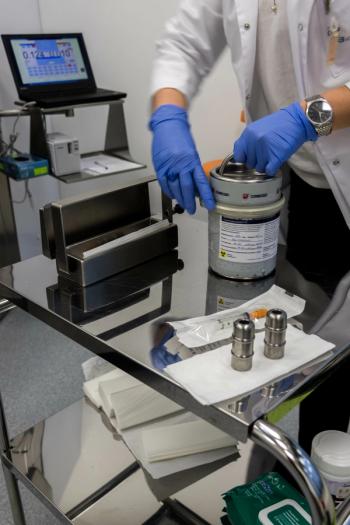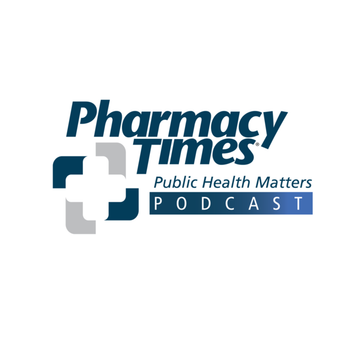
The pandemic was eye-opening for many pharmacists, and one expert reflects on recognizing the importance of the pharmacy technician and accessible healthcare.

The pandemic was eye-opening for many pharmacists, and one expert reflects on recognizing the importance of the pharmacy technician and accessible healthcare.

Akram Hussein, PharmD, MBA, BCNP, discusses the treatment process when treating a patient with prostate cancer with a radiopharmaceutical.

Muneeb Shah, DO, dermatologist and partner at PC Dermatology PLLC, and Reid Maclellan, MD, founder of Cortina Health Inc, tackle misinformation and myths surrounding sun screen, skin cancer, and acne.

An expert suggests that education and agency are significant barriers to care in marginalized communities, which she discusses live with Pharmacy Times at the American Pharmacists Association (APhA) Meeting & Exposition in Phoenix, Arizona from March 24 to 27.

Michael D. Hogue, PharmD, FAPhA, FNAP, FFIP, discusses some of the ways that social determinants of health can impact patient health outcomes.

Expert weighs the benefits and pitfalls of social media, the importance of quality information from credible journal sources, and why information that sparks an emotional response can be more influential than evidence-based facts.

Vibhuti Arya, PharmD, MPH, FAPhA, explains how APhA as an organization is opening discourse among its members regarding unpacking and dismantling structural racism in the organization and in the profession at large.

Vibhuti Arya, PharmD, MPH, FAPhA, discusses the role of the individual in progressing structural and systemic changes in the pharmacy ecosystem.

Although community oncology has grown, maintaining services for patients is an ongoing challenge.

Michael D. Hogue, PharmD, FAPhA, FNAP, FFIP, discusses current outlook on the occurrence of outbreaks of vaccine-preventable diseases in the country.

Specifically, 3 new drugs for sickle cell disease are providing options for patients who are not responding to hydroxyurea.

In addition to improving working conditions for current employees, burnout must be addressed in order to recruit and retain new employees and alleviate understaffing.

Although state efforts can be impactful, Downs said enforcement is a major hurdle.

Expert Cmdr. Jennifer Lind, PharmD, MPH, MBA, discussed how her work in the CDC and the USPHS is a unique path for pharmacists interested in public health.

Shiela Plasencia, director of practice support at the Community Oncology Alliance, discussed COA’s new tool to help practices prepare for the Enhancing Oncology Model.

Nick Ferreyros, managing director of policy, advocacy, and communications at the Community Oncology Alliance, discussed the Alliance’s efforts surrounding PBMs and 340B reform.

Kandy Dunnigan, AAS, CPhT-Adv, a drug diversion analyst at Novant Health, discusses her role in the pharmacy.

In his closing thoughts, Dr Haumschild discusses unmet needs in the treatment landscape for ovarian cancer.

A medical expert navigates clinical pathway considerations in the treatment of ovarian cancer.

Indya Wilson, MBA, CPhT, a pharmacy education support specialist at Novant Health Pharmacy Administration, discusses her role in the pharmacy and the benefits of alternative career paths for pharmacy technicians.

Following this year’s Match Day on March 15, pharmacists at US Pharmacopeia (USP) explain some of the opportunities student pharmacists can pursue outside of the traditional pharmacy career model.

Trastuzumab deruxtecan was approved by the FDA for HER2-low breast cancer treatment in 2022 and could also benefit some patients with hormone receptor-positive or triple-negative disease.

This episode features Bruce Berger, PhD, president of Berger Consulting, LLC, who discusses how pharmacists should best use motivational interviewing with patients.

Hannah Nivens, CPhT, a pharmacy distribution specialist at Novant Health Pharmacy Administration, discusses pharmacy distribution for pharmacy technicians.

Experts discuss novel agents being evaluated for use as third-line treatment options and provide their closing thoughts on this discussion.

Brandon Dyson, PharmD, BCOP, BCPS, explores considerations when selecting the next line of treatment, and the efficacy of omacetaxine and ponatinib as third-line therapy options.

Emily Graham, PharmD, MS, BCOP, an Oncology Clinical Pharmacy Specialist at Allegheny Health Network in Pittsburg, Pennsylvania, discusses the potential outcomes of mirvetuximab for patients with platinum-resistant ovarian cancer.

Quality of life and safety profiles are discussed by Ryan Haumschild, PharmD, MS, MBA.

Dr Haumschild navigates financial considerations associated with treatment of ovarian cancer.

In part 2 of this panel discussion, experts discuss how they define traditional versus nontraditional oncology pharmacy roles and where roles within industry fit in.